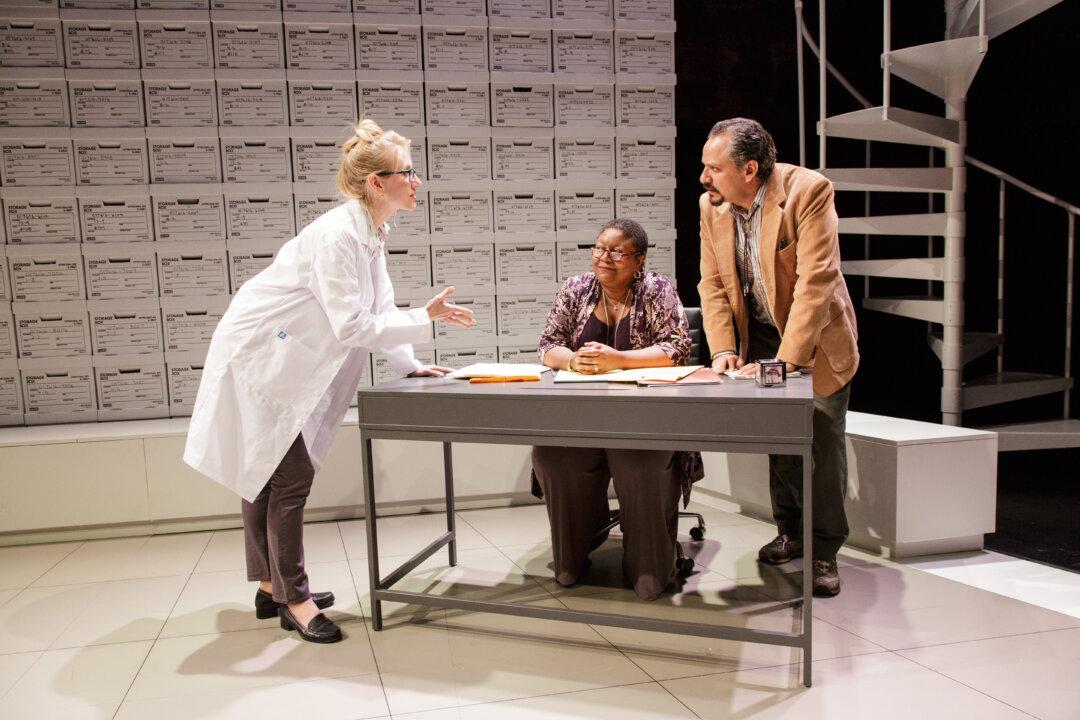NEW YORK—During the height of the Monica Lewinsky scandal, former President Bill Clinton said it all came down to the question of what “is” is. Such hairsplitting of words and the intent behind them is one of the underlying issues in Deborah Zoe Laufer’s thought-provoking drama “Informed Consent.” Based on actual events, the work is being presented by Primary Stages and Ensemble Studio Theatre at the Duke on 42nd Street.
Jillian (Tina Benko), a genetic anthropologist, has been tasked with trying to figure out why a Native American tribe, living on the floor of the Grand Canyon, has such a high rate of diabetes. According to the tribe’s history, they have lived there for all time, something they take quite seriously.
They also believe their blood to be sacred, which is why they have never allowed it to be collected by outsiders for any reason.





